Buying Guide
Turn your property journey into a smooth and enjoyable experience.
Your vision is our mission. Whether it’s your first home, a strategic investment, or a dream villa, your journey begins here.
Dubai’s iconic architecture, luxury lifestyle, and cultural diversity make it a prime location to live and invest in. To help you navigate this dynamic market, we’ve created a comprehensive buyer’s guide covering every step of the journey.
Your vision is our mission. Whether it’s your first home, a strategic investment, or a dream villa, your journey begins here.
Dubai’s iconic architecture, luxury lifestyle, and cultural diversity make it a prime location to live and invest in. To help you navigate this dynamic market, we’ve created a comprehensive buyer’s guide covering every step of the journey.
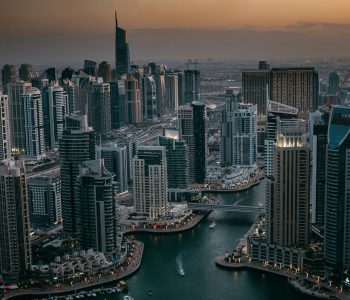
Understand the market
Dubai’s real estate market is one of the most dynamic and competitive in the world, shaped by rapid development, a tax-free environment, and a diverse population. Its strategic location and continuous growth in residential, commercial, and mixed-use projects make it a prime investment destination.
Stay informed on key trends like property prices, rental yields, and upcoming developments, as the market is influenced by economic shifts, policy changes, and global events. Use leading property portals such as Property Finder, Bayut, and Dubizzle to stay up to date.
Understand the market
Dubai’s real estate market is one of the most dynamic and competitive in the world, shaped by rapid development, a tax-free environment, and a diverse population. Its strategic location and continuous growth in residential, commercial, and mixed-use projects make it a prime investment destination.
Stay informed on key trends like property prices, rental yields, and upcoming developments, as the market is influenced by economic shifts, policy changes, and global events. Use leading property portals such as Property Finder, Bayut, and Dubizzle to stay up to date.

Determine your budget
Assess your finances
Before beginning your property search, assess your financial situation carefully. Factor in your savings, income, and any required financing, along with additional costs like registration fees, maintenance charges, and home insurance.
Financing options
If financing is required, explore Dubai’s diverse mortgage options—each with varying terms, interest rates, and eligibility criteria. Speak with banks or financial advisors to find the best fit for your needs.
Determine your budget
Assess your finances
Before beginning your property search, assess your financial situation carefully. Factor in your savings, income, and any required financing, along with additional costs like registration fees, maintenance charges, and home insurance.
Financing options
If financing is required, explore Dubai’s diverse mortgage options—each with varying terms, interest rates, and eligibility criteria. Speak with banks or financial advisors to find the best fit for your needs.

Choose the right location
Areas to consider
Dubai boasts a variety of communities, each with its own unique selling point. Popular areas include:
- Downtown Dubai: Known for its luxurious properties and iconic landmarks.
- Dubai Marina: Offers vibrant nightlife and waterfront living.
- Palm Jumeirah: Features exclusive villas and luxury apartments.
- Jumeirah Village Circle (JVC): A family-friendly area with affordable options.
- Dubai Hills Estate: Known for its green spaces, golf course and club-house.
Choose the right location
Areas to consider
Dubai boasts a variety of communities, each with its own unique selling point. Popular areas include:
- Downtown Dubai: Known for its luxurious properties and iconic landmarks.
- Dubai Marina: Offers vibrant nightlife and waterfront living.
- Palm Jumeirah: Features exclusive villas and luxury apartments.
- Jumeirah Village Circle (JVC): A family-friendly area with affordable options.
- Dubai Hills Estate: Known for its green spaces, golf course and club-house.
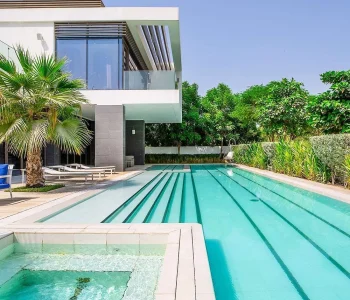
Lifestyle and amenities
Think about the amenities that matter most to you—whether it’s access to schools, hospitals, shopping malls, or public transport. Each community in Dubai offers its own unique lifestyle and benefits.
Find a reputable real estate agent
A skilled real estate agent can make a significant difference in your buying journey. Choose someone with strong local expertise, a solid reputation, and a proven track record. They’ll guide you through negotiations, offer valuable insights, and manage the legal and administrative steps with ease
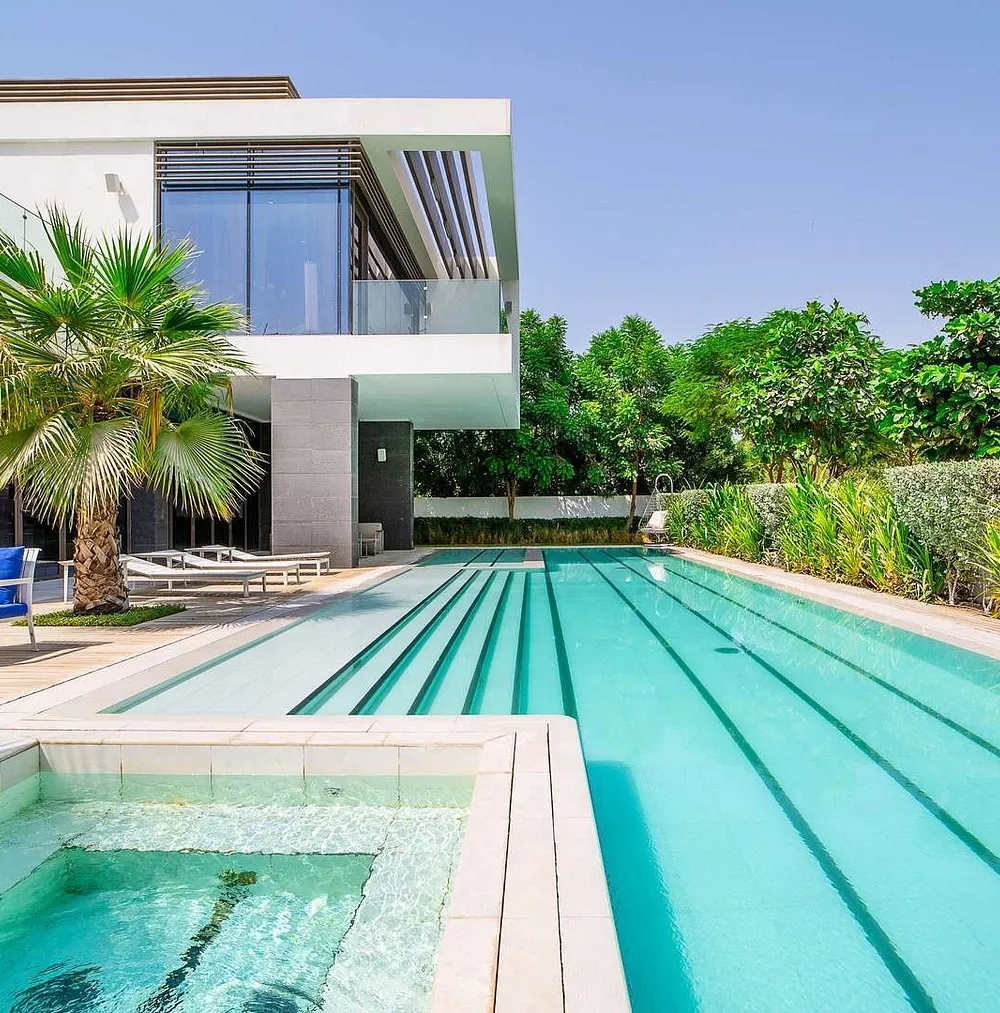
Lifestyle and amenities
Think about the amenities that matter most to you—whether it’s access to schools, hospitals, shopping malls, or public transport. Each community in Dubai offers its own unique lifestyle and benefits.
Find a reputable real estate agent
A skilled real estate agent can make a significant difference in your buying journey. Choose someone with strong local expertise, a solid reputation, and a proven track record. They’ll guide you through negotiations, offer valuable insights, and manage the legal and administrative steps with ease.

Legal and administrative procedures
Understand the legal framework
Understand the legal requirements before purchasing property in Dubai. Expats can buy in designated freehold areas, but it’s important to know the regulations and ownership structures to ensure a smooth and compliant transaction.
Required documents
Prepare necessary documents, including:
- Passport and visa
- Proof of income and financial statements
- No Objection Certificate (NOC) from the developer (if applicable)
Legal and administrative procedures
Understand the legal framework
Understand the legal requirements before purchasing property in Dubai. Expats can buy in designated freehold areas, but it’s important to know the regulations and ownership structures to ensure a smooth and compliant transaction.
Required documents
Prepare necessary documents, including:
- Passport and visa
- Proof of income and financial statements
- No Objection Certificate (NOC) from the developer (if applicable)

Sales agreement and transfer
After selecting a property, you’ll sign a sales agreement—be sure to review the terms carefully. The final transfer takes place at the Dubai Land Department (DLD), where you’ll pay transfer fees and register the property. Total closing costs typically amount to around 6% of the property value.
Final steps and moving in
Complete the purchase
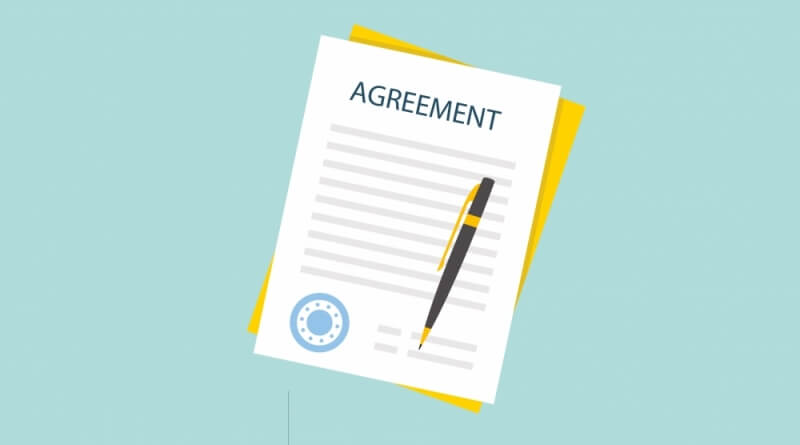
Sales agreement and transfer
After selecting a property, you’ll sign a sales agreement—be sure to review the terms carefully. The final transfer takes place at the Dubai Land Department (DLD), where you’ll pay transfer fees and register the property. Total closing costs typically amount to around 6% of the property value.
Final steps and moving in
Complete the purchase
Frequently asked questions
Yes, you can buy property in Dubai even if you’re not a resident. Dubai is welcoming to foreign investors and has made it relatively straightforward for non-residents to purchase property. There are a few key things to keep in mind:
- Freehold Areas: Foreigners can only buy property in designated freehold areas. These are specific areas where foreign ownership is allowed, and you should ensure the property you’re interested in falls within these zones.
- Property Types: You can typically buy residential properties, such as apartments and villas, but the rules can vary depending on the area and the type of property.
- Financing: If you’re considering a mortgage, be aware that non-residents may face different terms compared to residents. Some banks in Dubai offer mortgages to non-residents, but they usually require a larger down payment and may have different interest rates.
- Legal and Administrative Requirements: You’ll need to comply with Dubai’s property regulations, which include obtaining a property ownership certificate and possibly going through a legal process to ensure everything is in order.
- Investment Zones: There are specific zones and developments designed for foreign investors, which can offer additional incentives and benefits.
It’s a good idea to consult with a real estate agent or legal advisor who specialises in Dubai property to navigate the process smoothly.
Deciding between buying a ready-now property or an off-plan property in Dubai depends on various factors related to your personal situation, financial goals, and investment strategy. Here’s a breakdown of the pros and cons of each option to help you make an informed decision:
Ready-Now Property
Pros:
- Immediate Use or Rental Income: You can move in right away or start renting it out immediately, which provides instant returns.
- No Uncertainty: You can see the property in its completed state, which eliminates the risk of construction delays or changes to the finished product.
- Established Neighborhood: The area is likely to be fully developed, so you’ll have a better idea of the community, amenities, and overall environment.
Cons:
- Higher Purchase Price: Ready properties may come at a higher price compared to off-plan options due to their immediate availability.
- Less Flexibility: There’s no opportunity to customize the property or potentially benefit from any future developments in the area.
Off-Plan Property
Pros:
- Lower Purchase Price: Off-plan properties are often priced lower than ready-now properties, potentially offering better value for money.
- Potential for Capital Appreciation: If the property appreciates in value by the time it’s completed, you could benefit from capital gains.
- Payment Plans: Developers often offer flexible payment plans, allowing you to pay in installments over the construction period, which can be more manageable.
Cons:
- Construction Risks: There’s a risk of construction delays or issues with the final product not meeting expectations. It’s essential to research the developer’s track record.
- Time Lag: You’ll have to wait for the property to be completed before you can use it or start generating rental income, which could be a few years.
- Uncertainty: Changes in market conditions, the neighborhood’s development, or the property’s final quality are uncertain factors.
Factors to Consider
- Investment Goals: If you’re looking for immediate rental income, a ready-now property might be better. If you’re more interested in potential future gains and can handle some uncertainty, an off-plan property might be more suitable.
- Financial Situation: Consider your cash flow and financing options. Off-plan properties may offer more flexible payment terms, but ready properties require full payment upfront.
- Market Conditions: Analyze current real estate market trends in Dubai. In a booming market, off-plan properties might offer better future returns, while in a stable or declining market, ready-now properties might be a safer bet.
Ultimately, the best choice depends on your personal preferences, financial capacity, and investment objectives. It can also be helpful to consult with a real estate advisor in Dubai who can provide insights tailored to your specific needs.
The downpayment required to buy a property in Dubai can vary based on several factors, including whether you’re a resident or a non-resident, the type of property you’re purchasing, and the financing options you choose. Here’s a general guide:
For Non-Residents:
Standard Down Payment: Non-residents typically need to make a down payment of at least 40% of the property’s purchase price. This percentage can vary based on the lender and the property’s value.
Additional Costs: In addition to the down payment, you should budget for additional costs, including:
- Dubai Land Department (DLD) Fees: Typically 4% of the property’s purchase price.
- Registration Fees: Usually around AED 2,000 to AED 4,000.
- Legal Fees: If you hire a lawyer, their fees will add to the cost.
- Brokerage Fees: If you use a real estate agent, their commission is usually around 2% of the property price.
For Residents:
- Standard Down Payment: Residents often have a lower down payment requirement, typically around 20%. This can be influenced by the buyer’s credit history and the mortgage lender’s policies.
- Additional Costs: Similar to non-residents, residents will also need to budget for DLD fees, registration fees, legal fees, and brokerage fees.
Mortgage Considerations:
- LTV Ratio: The Loan-to-Value (LTV) ratio is a key factor. For non-residents, LTV ratios are generally lower, meaning you’ll need a larger down payment. For example, you might be able to borrow up to 75% of the property’s value, requiring a 25% down payment.
- Interest Rates: Non-residents might face higher interest rates compared to residents, so it’s important to factor this into your budget.
Additional Tips:
- Check Developer Offers: Some developers offer attractive payment plans for off-plan properties, which can reduce the upfront financial burden.
- For a second purchase for residents, down payment will increase to 40%
- Consult Financial Experts: Speak with mortgage brokers or financial advisors to get a clear understanding of your financing options and down payment requirements.
Make sure to account for all potential costs and consult with professionals to ensure you have a comprehensive understanding of the financial commitment involved.
When purchasing a property in Dubai, you’ll need to gather and prepare several key documents. The exact requirements can vary slightly depending on whether you are a resident or a non-resident and whether you’re buying a ready-now property or an off-plan property. Here’s a general list of the documents typically required:
For All Buyers:
Identification:
- Passport: A valid passport for non-residents. For residents, a valid Emirates ID can also be required.
- Visa: A valid UAE residence visa (if applicable).
Proof of Address:
- Utility Bill or Bank Statement: A recent utility bill or bank statement that shows your current address.
Proof of Funds:
- Bank Statements: To demonstrate you have the financial means to cover the down payment and other costs.
- Proof of Source of Funds: Documentation that shows the source of your funds, such as salary slips, business income, or other investments.
Property-Related Documents:
- Sales and Purchase Agreement (SPA): This is the contract between the buyer and the seller outlining the terms of the sale.
- No Objection Certificate (NOC): If buying a property from a developer, an NOC is required to confirm that the developer has no objections to the sale.
Mortgage Documents (if applicable):
- Pre-Approval Letter: If you are financing the purchase with a mortgage, you will need a pre-approval letter from the lender.
- Mortgage Application Form: Completed form required by the lender.
- Additional Documents: Depending on the lender, additional documentation such as proof of employment, income statements, or credit reports may be needed.
For Non-Residents:
Additional Proof of Identity and Residency:
- Notarized Documents: Some documents might need to be notarized or attested, depending on the requirements of the Dubai Land Department or the developer.
Developer-Related Documents:
- Developer’s Offer Letter: For off-plan properties, you’ll need the developer’s offer letter or contract.
Additional Requirements:
Dubai Land Department (DLD) Fees:
- Payment Proof: Proof of payment for the DLD registration fees, which are typically 4% of the property value.
Power of Attorney (if applicable):
- If you are not personally handling the transaction: You may need to provide a power of attorney if someone else is acting on your behalf.
Title Deed:
- For Ready Properties: The existing title deed, if purchasing a ready-now property, will be transferred to your name.
Process Overview:
Agreement and Payment:
- Initial Deposit: Usually paid upon signing the Sales and Purchase Agreement.
- Completion Payment: The remaining amount is settled on the transfer date.
Property Transfer:
- Dubai Land Department Transfer: The property transfer is registered with the Dubai Land Department, and you will need to pay the registration fees at this stage.
Final Documentation:
- Title Deed: After the transfer is completed, you will receive the title deed in your name.
It’s always a good idea to consult with a local real estate agent or legal advisor to ensure you have all the necessary documents and understand the process thoroughly. They can help guide you through the paperwork and regulatory requirements specific to your transaction.
Summary of Typical Costs:
- DLD Transfer Fee: 4% of the property price
- Registration Fees: AED 2,000 to AED 4,000
- Brokerage Fee: 2% of the property price
- Developer NOC Fee: AED 500 to AED 2,000 (for off-plan properties)
- Legal Fees: AED 5,000 to AED 15,000
- Mortgage Fees: 1% to 1.5% of the loan amount + valuation fee
- Service Charges: AED 10 to AED 25 per square foot annually
- Miscellaneous Costs: Varies
It’s advisable to budget for these costs in addition to the property’s purchase price to ensure you’re financially prepared for the entire transaction. Consulting with a local real estate agent or legal advisor can help you get a clearer understanding of the specific fees for your situation.
1. Types of Financing:
- Bank Mortgages: Offered for both ready and off-plan properties.
- Developer Financing: Flexible payment plans for off-plan properties.
2. Mortgage Requirements:
Down Payment:
- Residents: 15%–20%
- on-Residents: 20%–25%
Loan-to-Value (LTV) Ratio:
- Residents: Up to 80%
- Non-Residents: Up to 75%
Interest Rates: Fixed or variable, depending on the lender.
Loan Term: Typically 15 to 25 years.
3. Required Documents:
- Proof of Identity: Passport, UAE visa (residents), or proof of address (non-residents).
- Proof of Income: Salary slips, employment letter, or business income.
- Credit History: Good credit score required.
- Property Valuation Report: Required by the bank.
- Sales and Purchase Agreement (SPA): Contract with the seller.
4. Steps to Obtain a Mortgage:
- Pre-Approval: Apply for pre-approval to know your budget.
- Property Search: Find a property within your budget.
- Mortgage Application: Submit application with required documents.
- Valuation: Bank conducts property valuation.
- Approval: Receive loan offer and finalize purchase.
5. Additional Costs:
- Fees: Include mortgage arrangement, valuation, and registration fees.
- Legal Advice: Consult a legal advisor to understand the terms and implications.
Shopping around and comparing offers from different lenders is crucial to securing the best financing for your property purchase.
Frequently asked questions
Yes, you can buy property in Dubai even if you’re not a resident. Dubai is welcoming to foreign investors and has made it relatively straightforward for non-residents to purchase property. There are a few key things to keep in mind:
- Freehold Areas: Foreigners can only buy property in designated freehold areas. These are specific areas where foreign ownership is allowed, and you should ensure the property you’re interested in falls within these zones.
- Property Types: You can typically buy residential properties, such as apartments and villas, but the rules can vary depending on the area and the type of property.
- Financing: If you’re considering a mortgage, be aware that non-residents may face different terms compared to residents. Some banks in Dubai offer mortgages to non-residents, but they usually require a larger down payment and may have different interest rates.
- Legal and Administrative Requirements: You’ll need to comply with Dubai’s property regulations, which include obtaining a property ownership certificate and possibly going through a legal process to ensure everything is in order.
- Investment Zones: There are specific zones and developments designed for foreign investors, which can offer additional incentives and benefits.
It’s a good idea to consult with a real estate agent or legal advisor who specialises in Dubai property to navigate the process smoothly.
Deciding between buying a ready-now property or an off-plan property in Dubai depends on various factors related to your personal situation, financial goals, and investment strategy. Here’s a breakdown of the pros and cons of each option to help you make an informed decision:
Ready-Now Property
Pros:
- Immediate Use or Rental Income: You can move in right away or start renting it out immediately, which provides instant returns.
- No Uncertainty: You can see the property in its completed state, which eliminates the risk of construction delays or changes to the finished product.
- Established Neighborhood: The area is likely to be fully developed, so you’ll have a better idea of the community, amenities, and overall environment.
Cons:
- Higher Purchase Price: Ready properties may come at a higher price compared to off-plan options due to their immediate availability.
- Less Flexibility: There’s no opportunity to customize the property or potentially benefit from any future developments in the area.
Off-Plan Property
Pros:
- Lower Purchase Price: Off-plan properties are often priced lower than ready-now properties, potentially offering better value for money.
- Potential for Capital Appreciation: If the property appreciates in value by the time it’s completed, you could benefit from capital gains.
- Payment Plans: Developers often offer flexible payment plans, allowing you to pay in installments over the construction period, which can be more manageable.
Cons:
- Construction Risks: There’s a risk of construction delays or issues with the final product not meeting expectations. It’s essential to research the developer’s track record.
- Time Lag: You’ll have to wait for the property to be completed before you can use it or start generating rental income, which could be a few years.
- Uncertainty: Changes in market conditions, the neighborhood’s development, or the property’s final quality are uncertain factors.
Factors to Consider
- Investment Goals: If you’re looking for immediate rental income, a ready-now property might be better. If you’re more interested in potential future gains and can handle some uncertainty, an off-plan property might be more suitable.
- Financial Situation: Consider your cash flow and financing options. Off-plan properties may offer more flexible payment terms, but ready properties require full payment upfront.
- Market Conditions: Analyze current real estate market trends in Dubai. In a booming market, off-plan properties might offer better future returns, while in a stable or declining market, ready-now properties might be a safer bet.
Ultimately, the best choice depends on your personal preferences, financial capacity, and investment objectives. It can also be helpful to consult with a real estate advisor in Dubai who can provide insights tailored to your specific needs.
The downpayment required to buy a property in Dubai can vary based on several factors, including whether you’re a resident or a non-resident, the type of property you’re purchasing, and the financing options you choose. Here’s a general guide:
For Non-Residents:
Standard Down Payment: Non-residents typically need to make a down payment of at least 40% of the property’s purchase price. This percentage can vary based on the lender and the property’s value.
Additional Costs: In addition to the down payment, you should budget for additional costs, including:
- Dubai Land Department (DLD) Fees: Typically 4% of the property’s purchase price.
- Registration Fees: Usually around AED 2,000 to AED 4,000.
- Legal Fees: If you hire a lawyer, their fees will add to the cost.
- Brokerage Fees: If you use a real estate agent, their commission is usually around 2% of the property price.
For Residents:
- Standard Down Payment: Residents often have a lower down payment requirement, typically around 20%. This can be influenced by the buyer’s credit history and the mortgage lender’s policies.
- Additional Costs: Similar to non-residents, residents will also need to budget for DLD fees, registration fees, legal fees, and brokerage fees.
Mortgage Considerations:
- LTV Ratio: The Loan-to-Value (LTV) ratio is a key factor. For non-residents, LTV ratios are generally lower, meaning you’ll need a larger down payment. For example, you might be able to borrow up to 75% of the property’s value, requiring a 25% down payment.
- Interest Rates: Non-residents might face higher interest rates compared to residents, so it’s important to factor this into your budget.
Additional Tips:
- Check Developer Offers: Some developers offer attractive payment plans for off-plan properties, which can reduce the upfront financial burden.
- For a second purchase for residents, down payment will increase to 40%
- Consult Financial Experts: Speak with mortgage brokers or financial advisors to get a clear understanding of your financing options and down payment requirements.
Make sure to account for all potential costs and consult with professionals to ensure you have a comprehensive understanding of the financial commitment involved.
When purchasing a property in Dubai, you’ll need to gather and prepare several key documents. The exact requirements can vary slightly depending on whether you are a resident or a non-resident and whether you’re buying a ready-now property or an off-plan property. Here’s a general list of the documents typically required:
For All Buyers:
Identification:
- Passport: A valid passport for non-residents. For residents, a valid Emirates ID can also be required.
- Visa: A valid UAE residence visa (if applicable).
Proof of Address:
- Utility Bill or Bank Statement: A recent utility bill or bank statement that shows your current address.
Proof of Funds:
- Bank Statements: To demonstrate you have the financial means to cover the down payment and other costs.
- Proof of Source of Funds: Documentation that shows the source of your funds, such as salary slips, business income, or other investments.
Property-Related Documents:
- Sales and Purchase Agreement (SPA): This is the contract between the buyer and the seller outlining the terms of the sale.
- No Objection Certificate (NOC): If buying a property from a developer, an NOC is required to confirm that the developer has no objections to the sale.
Mortgage Documents (if applicable):
- Pre-Approval Letter: If you are financing the purchase with a mortgage, you will need a pre-approval letter from the lender.
- Mortgage Application Form: Completed form required by the lender.
- Additional Documents: Depending on the lender, additional documentation such as proof of employment, income statements, or credit reports may be needed.
For Non-Residents:
Additional Proof of Identity and Residency:
- Notarized Documents: Some documents might need to be notarized or attested, depending on the requirements of the Dubai Land Department or the developer.
Developer-Related Documents:
- Developer’s Offer Letter: For off-plan properties, you’ll need the developer’s offer letter or contract.
Additional Requirements:
Dubai Land Department (DLD) Fees:
- Payment Proof: Proof of payment for the DLD registration fees, which are typically 4% of the property value.
Power of Attorney (if applicable):
- If you are not personally handling the transaction: You may need to provide a power of attorney if someone else is acting on your behalf.
Title Deed:
- For Ready Properties: The existing title deed, if purchasing a ready-now property, will be transferred to your name.
Process Overview:
Agreement and Payment:
- Initial Deposit: Usually paid upon signing the Sales and Purchase Agreement.
- Completion Payment: The remaining amount is settled on the transfer date.
Property Transfer:
- Dubai Land Department Transfer: The property transfer is registered with the Dubai Land Department, and you will need to pay the registration fees at this stage.
Final Documentation:
- Title Deed: After the transfer is completed, you will receive the title deed in your name.
It’s always a good idea to consult with a local real estate agent or legal advisor to ensure you have all the necessary documents and understand the process thoroughly. They can help guide you through the paperwork and regulatory requirements specific to your transaction.
Summary of Typical Costs:
- DLD Transfer Fee: 4% of the property price
- Registration Fees: AED 2,000 to AED 4,000
- Brokerage Fee: 2% of the property price
- Developer NOC Fee: AED 500 to AED 2,000 (for off-plan properties)
- Legal Fees: AED 5,000 to AED 15,000
- Mortgage Fees: 1% to 1.5% of the loan amount + valuation fee
- Service Charges: AED 10 to AED 25 per square foot annually
- Miscellaneous Costs: Varies
It’s advisable to budget for these costs in addition to the property’s purchase price to ensure you’re financially prepared for the entire transaction. Consulting with a local real estate agent or legal advisor can help you get a clearer understanding of the specific fees for your situation.
1. Types of Financing:
- Bank Mortgages: Offered for both ready and off-plan properties.
- Developer Financing: Flexible payment plans for off-plan properties.
2. Mortgage Requirements:
Down Payment:
- Residents: 15%–20%
- on-Residents: 20%–25%
Loan-to-Value (LTV) Ratio:
- Residents: Up to 80%
- Non-Residents: Up to 75%
Interest Rates: Fixed or variable, depending on the lender.
Loan Term: Typically 15 to 25 years.
3. Required Documents:
- Proof of Identity: Passport, UAE visa (residents), or proof of address (non-residents).
- Proof of Income: Salary slips, employment letter, or business income.
- Credit History: Good credit score required.
- Property Valuation Report: Required by the bank.
- Sales and Purchase Agreement (SPA): Contract with the seller.
4. Steps to Obtain a Mortgage:
- Pre-Approval: Apply for pre-approval to know your budget.
- Property Search: Find a property within your budget.
- Mortgage Application: Submit application with required documents.
- Valuation: Bank conducts property valuation.
- Approval: Receive loan offer and finalize purchase.
5. Additional Costs:
- Fees: Include mortgage arrangement, valuation, and registration fees.
- Legal Advice: Consult a legal advisor to understand the terms and implications.
Shopping around and comparing offers from different lenders is crucial to securing the best financing for your property purchase.

Delivering a Seamless and Rewarding Property Experience.
Looking to sell or let your property? Our dedicated team is here to guide you every step of the way. Get in touch to discover how we can help you achieve your real estate goals.

Delivering a Seamless and Rewarding Property Experience.
Looking to sell or let your property? Our dedicated team is here to guide you every step of the way. Get in touch to discover how we can help you achieve your real estate goals.
Providing a seamless and enjoyable property experience.
Looking to sell or let your property? Our experienced and passionate team at Amira Realty is here to support you every step of the way. Contact us today to discover how we can help you achieve your goals.
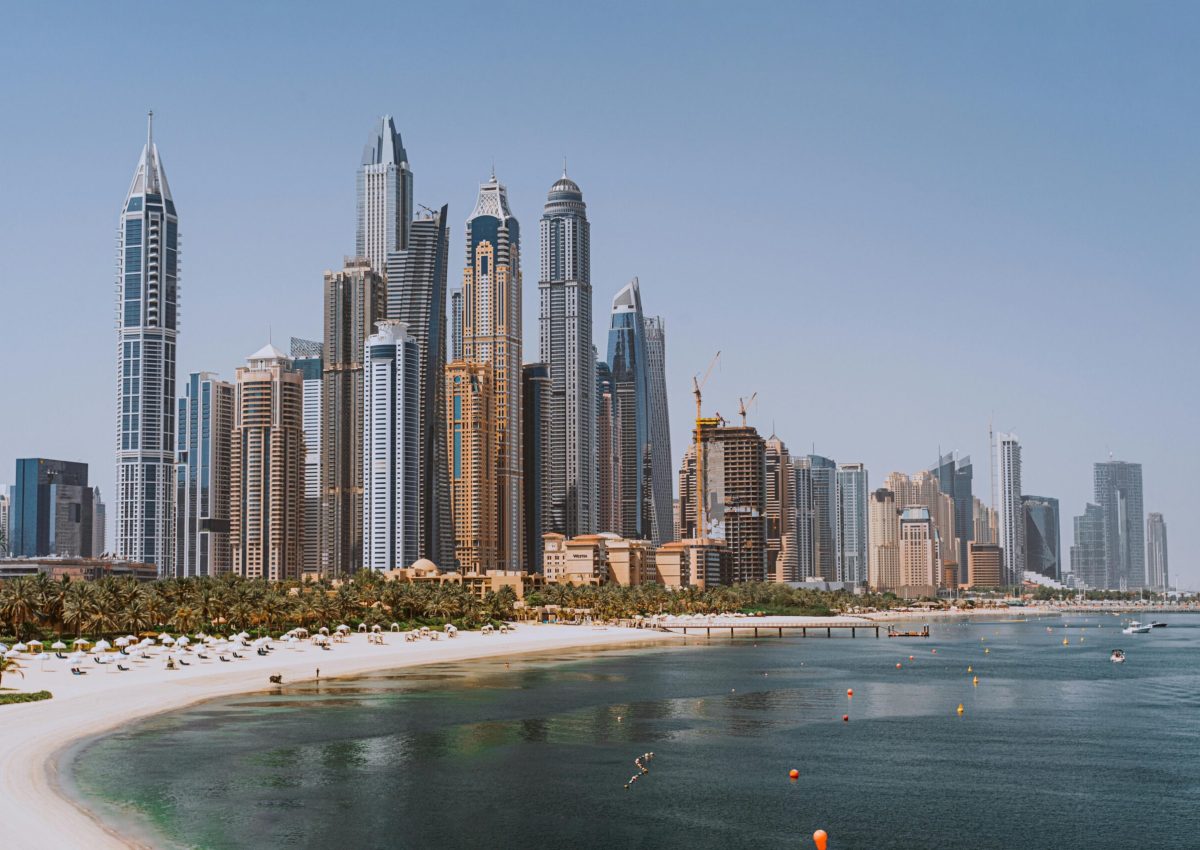

Providing a seamless and enjoyable property experience.
Looking to sell or let your property? Our experienced and passionate team at Amira Realty is here to support you every step of the way. Contact us today to discover how we can help you achieve your goals.
Get in touch
Our team will assist your shortly.
Get in touch
Our team will assist your shortly.

Begin Your Journey with Amira Realty
Ready to sell or let your property? At Amira Realty, we understand the importance of this decision and are here to support you with expert guidance every step of the way.

Begin Your Journey with Amira Realty
Ready to sell or let your property? At Amira Realty, we understand the importance of this decision and are here to support you with expert guidance every step of the way.



